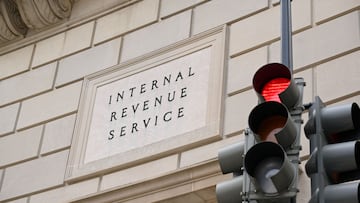Can you claim a student loan interest deduction on your taxes in 2023?
Student loan borrowers are allowed to deduct a portion of the interest paid on their debt from their taxes. However, it’s a little complicated this year.

Student loan borrowers are allowed to deduct up to $2,500 in interest they have paid on their tax returns each year. They key word there being “paid”. Since March 2020, there has been a moratorium on interest accruing on most federal student loans and repayments. Those that have been making payments on federal student loans, have only been paying down the principal of the loan and not any interest since the forbearance program was started.
The pause is set to end at the end of June or sooner depending on the Supreme Court. But repayments won’t start again until 60 days after whichever of the two happens first, and at that time interest will begin to accrue as well once again. That means that for the whole of 2022, no interest was paid by borrowers on most federal student loans.
However, those with private student loans and those with commercially held Federal Family Education Loans (FFEL) may be eligible in 2023 to deduct some or all interest payments made last year. Here’s a look at the “student loan interest deduction”…
You may be interested in: Will I have to repay my student loan of up to $20,000 if the Supreme Court overturns the forgiveness plan?
Requirements to claim a student loan interest deduction on your taxes in 2023
Normally, all student loan borrowers that meet the eligibility requirements for the student loan interest deduction would be able to deduct up to $2,500 in interest “they paid”. However, as mentioned, only those who are paying of commercially held Federal Family Education Loans (FFEL) or any private student loans will be able to on 2022 tax returns.
Also keep in mind that the Internal Revenue Service (IRS) does not allow any double benefit. You cannot claim any interest on your student loan that you’re your employer paid as part of an educational assistance program after 27 March 2020 and before 1 January 2026.
The Internal Revenue Service sets a limit for modified adjusted gross income (MAGI) to be eligible. For the 2022 fiscal year, in order to claim the full $2,500 you cannot have had income of more than $70,000 filing single and $145,000 if you file a joint return. Above those thresholds the amount that you can deduct phases out until those who made more than $85,000 and $175,000, respectively, are not eligible at all.
How can you claim a student loan interest deduction on your taxes in 2023?
Taxpayers claim the student loan interest deduction as an adjustment to income when filing a tax return because the deduction is above line. So, you can still claim this deduction even if you don’t itemize deductions on Schedule A (Form 1040).
The amount of interest that a borrower has paid is reported by the lender to the IRS on tax Form 1098-E, which they should also send you a copy of for interest paid of $600 or more in 2022. It will be sent either via email or by post.
If your loan servicer hasn’t sent you a copy, you can download your Form 1098-E from your loan servicer’s website. Federal Student Aid provides a list of loan servicers to find the details for yours. If you don’t know who your student loan servicer is, you can log in to StudentAid.gov or call the Federal Student Aid Information Center at 1-800-4-FED-AID (1-800-433-3243; TTY 1-800-730-8913).






